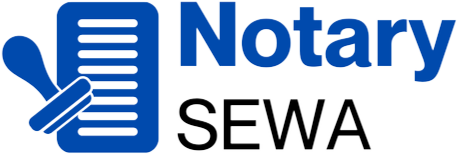
When it comes to managing legal and financial matters in Nepal, having a clear understanding of a Power of Attorney (POA) is essential. This article explains the various cost components, the expected timeframe, and the procedural steps for obtaining a POA while ensuring compliance with Nepalese regulations. Whether you need a POA for personal or business purposes, the insights provided here will guide you through the process.
What Is a Power of Attorney?
A Power of Attorney is a legal document that authorizes an appointed agent (or attorney-in-fact) to act on behalf of the principal in various matters. In Nepal, a POA is commonly used to delegate authority when an individual is unavailable to handle legal or financial issues personally.
- Purpose: It empowers the agent to sign contracts, manage property transactions, and handle banking matters.
- Legal Significance: Once notarized and registered, a POA becomes a binding legal document under Nepalese law.
- Relevance: With increasing legal formalities in urban centers like Kathmandu, a properly executed POA ensures your affairs are managed effectively and securely.
For more details on POA, visit our Powers of Attorney service page.
Breaking Down the Costs
Understanding the expenses involved is crucial. The total cost of obtaining a Power of Attorney in Nepal depends on several factors, including government fees, legal consultation, and administrative charges.
Key Cost Components
Every POA typically incurs the following costs:
- Government Fees:
- Registration Charges: Fees are imposed when registering your POA with the relevant authorities.
- Stamp Duty: A nominal fee required to validate the document.
- Notary and Legal Fees:
- Notary Service Charges: Costs vary based on the notary’s experience and the complexity of your document.
- Legal Consultation Fees: If you opt for legal advice to draft or review your POA, additional fees will apply.
- Administrative Expenses:
- Document Preparation: This includes costs for printing, copying, and preparing the necessary paperwork.
- Processing Fees: Administrative fees charged by government offices or legal service providers.
Factors Affecting the Total Cost
Several factors can influence the overall expense:
- Document Complexity: A simple POA costs less than one with multiple clauses or conditions.
- Urgency: Rush or express services may increase fees.
- Location: Costs in Kathmandu or other urban areas can differ from those in smaller towns.
- Additional Services: If your POA requires translation, certification, or further notarization for international use, additional charges may apply.
Example Cost Breakdown
- Government Registration & Stamp Duty: NPR 200–500
- Notary Fees: NPR 500–1,500
- Legal Consultation (if needed): NPR 1,000–3,000
- Administrative Expenses: Vary based on provider
For further insights on document security, check out How Documents Notarization Protects Against Document Fraud.
Timeframe for Obtaining a Power of Attorney
It is important not only to understand the costs but also the time required to complete the process. The duration from initiation to final issuance of a POA can vary based on several steps.
Step-by-Step Process and Time Estimates
Below is an overview of the process along with estimated timeframes:
- Document Preparation (1–3 Days):
- Drafting the POA: Prepare the document using a reliable template or with the help of a legal professional.
- Review: Ensure that all clauses are in line with Nepalese legal requirements.
- Notarization (Same Day to 1 Day):
- Appointment Scheduling: Book an appointment with a notary public.
- Verification: The notary verifies identities and the document’s authenticity before notarizing.
- Registration (2–7 Days):
- Submission: Submit the notarized document to the appropriate government office.
- Processing: Registration time varies depending on the workload of the government office.
- Final Issuance (1–2 Days):
- Document Collection: Once processed, you can collect the officially registered POA.
Influencing Factors on Timeframe
- Document Complexity: More detailed POAs may require extra time for legal review.
- Government Office Efficiency: Processing times can vary based on local administrative efficiency.
- Scheduling Delays: Delays in appointments with notaries or legal advisors can extend the process.
- Additional Requirements: Extra services such as translations or certifications will add to the overall timeframe.
For tips on expediting your process, read How to Speed Up the Documents Notarization Process Without Errors.
Key Factors Influencing Both Costs and Timeframe
Both cost and duration are influenced by similar factors. Understanding these factors can help you plan and budget more effectively:
- Nature of the Legal Matter:
- A simple financial POA is generally quicker and less expensive than one that deals with complex property or business transactions.
- Urgency of Requirement:
- Emergency or expedited services will likely incur higher fees.
- Service Provider Location:
- Urban service providers may charge a premium, although they often offer faster processing.
- Level of Legal Consultation:
- Custom drafting or legal reviews add to both cost and processing time.
- Additional Services Required:
- Extra documentation services, such as translation or international certification, affect overall expenditure and processing time.
Quick Summary in Bullet Points:
- Document Complexity and Customization
- Urgency and Express Service Charges
- Location-Based Variations
- Legal Consultation and Additional Services
- Governmental Processing Times
Practical Steps to Secure a Power of Attorney in Nepal
For a hassle-free experience, follow these practical steps tailored for Nepalese audiences:
- Determine Your Needs:
- Clearly define the scope of authority you wish to delegate.
- Decide if you need a general POA or one with specific powers.
- Consult a Legal Advisor:
- Speak with a trusted legal professional to draft and review your POA.
- Visit our Notary Services Home Page or Services Page for more trusted assistance.
- Prepare Your Documents:
- Gather all required personal and legal documents.
- Confirm the list of documents with your legal advisor.
- Draft the POA:
- Use a reputable template or have a custom document prepared.
- Ensure that the language is simple and meets Nepalese legal standards.
- Notarization:
- Book an appointment with a certified notary public.
- Bring all necessary identification and supporting documents.
- Registration:
- Submit the notarized document to the relevant government office.
- Pay the applicable fees and wait for processing.
- Collect the Final Document:
- Once registered, collect the official POA and keep multiple copies for future reference.
Following these steps will help you manage the process efficiently, avoid unnecessary delays, and control costs.
Legal and Regulatory Considerations in Nepal
Ensuring that your POA meets all legal requirements is vital. Below are some important legal considerations:
- Compliance with Nepalese Law:
- All POAs must adhere to the regulations set by the Government of Nepal. Refer to reputable sources like the Nepal Law Commission for current guidelines.
- Mandatory Notarization:
- Notarization is essential for the legal validity of your POA. It acts as a safeguard against fraud and errors.
- Registration Requirements:
- After notarization, the document must be registered with local authorities to be legally enforceable.
- Jurisdiction-Specific Clauses:
- Include any clauses that reflect the local legal practices and regional requirements.
By following these guidelines, you ensure that your POA is robust, legally sound, and fully enforceable.
The Importance of Notarization and Document Authentication
Notarization plays a key role in preventing fraud and ensuring legal validity. Here’s why it matters:
- Identity Verification:
- The notary public verifies the identities of all parties involved, reducing the risk of impersonation.
- Enhanced Legal Weight:
- A notarized document is more credible and holds greater legal weight in disputes.
- Fraud Prevention:
- Proper notarization minimizes the chances of document tampering or forgery.
For additional insights on notarization benefits, explore our articles on The Role of Documents Notarization in Legalizing Sensitive Documents and How Documents Notarization Protects Against Document Fraud.
Tips to Expedite the Process and Reduce Costs
Efficiency and cost-effectiveness are key. Here are some practical tips:
- Plan Ahead:
- Gather all required documents and verify requirements before starting.
- Consult Trusted Providers:
- Use reputable legal professionals and notary services to ensure a smooth process.
- Leverage Online Resources:
- Utilize our online guides and downloadable templates to understand the process better.
- Schedule Strategically:
- Book appointments early and plan for contingencies such as additional translation or certification services.
Related Services and Further Resources
To fully support your legal documentation needs, we have provided links to related services and additional resources:
Related Legal Services
- Documents Notarization
- Affidavits and Sworn Statements
- Certification of Legal Documents
- Witnessing Signatures
- Wills and Testament Notarization
- Trust Agreement Notarization
- Court Documents Notarization
- Business Contracts Notarization
Additional Legal Services
- Apostille of Documents
- Legalization of Documents
- Ministry of Foreign Affairs (MOFA) Attestation Services
- Translation of Official Documents
- Marriage Act Translation for Foreigners
- Multilingual Document Translation and Verification
- Unofficial Documents Translation
- Legal Website Localization Services
- CA Audit Report Notarization
- Property Valuation for Legal Purposes
- Loan and Mortgage Documents Notarization
- Real Estate Transactions Notarization
- International Shipping Documents Notarization
For an overview of all our legal services, please visit our Services Page.
Related Blogs for Further Reading
- The Role of Documents Notarization in Legalizing Sensitive Documents
- How to Speed Up the Documents Notarization Process Without Errors
- The Most Common Misconceptions About Powers of Attorney
- When and How to Revoke a Notarized Power of Attorney
- Who Should You Trust With Your Power of Attorney
For more insights on document legalization, see our posts on:
- Apostille vs. Notarization: What’s the Difference?
- How Certification of Legal Documents Protects Against Document Fraud
Conclusion
Obtaining a Power of Attorney in Nepal requires careful planning—from understanding the cost components and processing fees to managing the timeline for notarization and registration. This guide provides a clear roadmap of the entire process, ensuring that you are well-informed about the necessary steps, associated expenses, and legal requirements. Whether you are handling personal affairs or complex business matters, being knowledgeable about the costs and timeframe helps you make informed decisions and avoid unnecessary delays.
For personalized advice or further information on legal documentation, please consult a trusted legal professional or explore our comprehensive range of services on the Home Page and Services Page.
